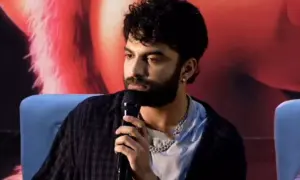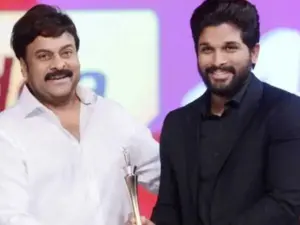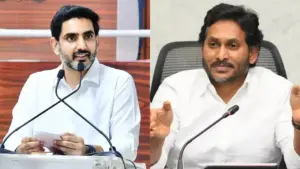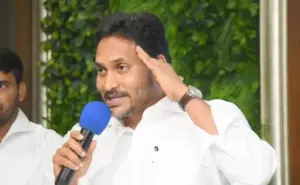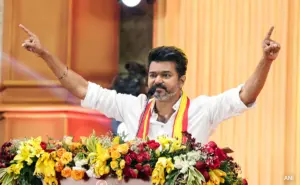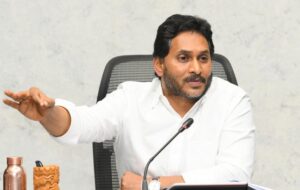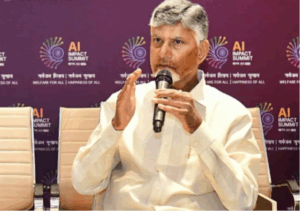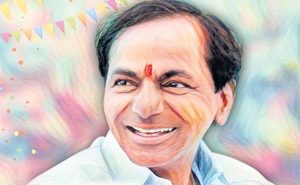 Telangana Rashtra Samithi president and chief minister K Chandrasekhar Rao, who completed one year in office in his second term on Friday, has a lot of similarities with Prime Minister Narendra Modi, though both of them are poles apart in terms of ideology.
Telangana Rashtra Samithi president and chief minister K Chandrasekhar Rao, who completed one year in office in his second term on Friday, has a lot of similarities with Prime Minister Narendra Modi, though both of them are poles apart in terms of ideology.
Both of them have returned to power for a second successive term – KCR in December 2018 and Modi in May 2019, debunking the observations of even the senior-most political analysts that there was an anti-establishment wave as an undercurrent among the electorate.
Both Modi and KCR came back to power not with a narrow margin, but with a huge mandate from the people.
The Modi-led Bharatiya Janata Party got more than 300 MP seats in the 540-member Lok Sabha on its own, while the TRS bagged a three-fourths majority in the assembly elections by winning 88 seats in the 119-member assembly.
One of the many factors for this resounding victory of both Modi and KCR with so much ease is that the opposition is very weak.
Even if there was any strong anti-establishment atmosphere in the country as well as the state, the opposition parties were absolutely not in a position to cash in on this anti-establishment wave.
Particularly, the Congress party lacked a strong leadership both at the Centre and also in Telangana, who could match the stature of Modi at the Centre and KCR in the state. As a result, the people had no choice but to vote for the BJP in Delhi and TRS in the state once again.
In political parlance, this is called TINA (There Is No Alternative) factor which helped Modi and KCR returned to power.
Of course, KCR had other positive factors as well in coming to power – like strategic implementation of welfare schemes like Rythu Bandhu, Rythu Bhima, increased pensions, Bathukamma sarees etc., for the last one year before the elections that were quite attractive for the voters.
But the weak opposition had been the main strength of the TRS president. Even after one year in office in his second term, KCR is able to create the impression that there is no better leader than him in the state, only because there is virtually no opposition in the state that could take his failures or dictatorial rule into the people effectively.
The classic example for this situation is the recent 55-day long strike by the Telangana RTC employees. It was a historic strike that should have shaken the government from the bottom.
But, KCR successfully crushed the strike by forcing the RTC employees to withdraw their strike on their own and come down on their knees begging before him without achieving any of their demands. This was only because the opposition parties were too weak to support the strike.
Politically, KCR completely decimated the opposition by luring 12 out of 19 MLAs from the Congress party, one from TDP and two independents, besides wresting the Huzurnagar seat from the Congress, increasing the TRS tally to 104.
Though he received a rude shock in the Lok Sabha elections as the BJP won four MP seats and the Congress three, the TRS bounced back within a month by winning 90 per cent of mandal parishads and all the 32 Zilla Parishads in the local body elections.
KCR’s great ambition of playing a role in national politics by floating a federal front has fallen flat with the return of Modi to power for a second term with thumping majority.
Having no option, he made an attempt to build bridges with the BJP, but Modi-Shah combine did not entertain him as they have different plans for Telangana.
Having no other option, KCR has started taking an anti-BJP stand in the last few months. He also tried to take his Andhra counterpart Y S Jagan Mohan Reddy along with him in his fight with the Centre.
But Jagan turned out to be a hard nut to crack; though he appeared to be cosying up with KCR initially, but after realising the latter’s game plan, he virtually dumped the TRS chief.
But in terms of governance, KCR’s second tenure as chief minister in the last one year was virtually a flop show.
Except inaugurating the partially completed Kaleshwaram project, he has not done anything new and on the other hand, he is not able to implement his welfare schemes introduced in the first term.
As KCR himself has admitted, the financial position has turned from bad to worse and he is not able to find money to implement in the schemes. Several of his programmes have come to a halt due to massive cuts in budgetary allocations.
Though he is trying to thrown the blame on to the Centre for not releasing funds due to the state, his financial mismanagement is also one of the reasons for the sorry state of affairs.
In spite of his failures, the people of Telangana have no option but to back KCR due to lack of alternative. Unless a strong opposition emerges, KCR will continue to reign supreme in Telangana.
There is still four years to go for the next elections and much water will flow in Kaleshwaram by then. Let us wait and see what is in store for the people of Telangana then!
Recent Random Post:




